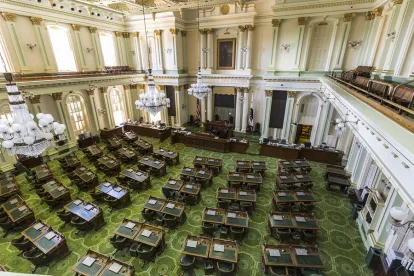Like the days of the Old West, last week a masked gang held up local businesses demanding their wallets. Unlike the days of the Old West, this was not the hole-in-the-wall gang, but the California State Assembly who, on June 10, 2020, approved AB 2570, a bill that authorizes tax-based false claims actions. If passed, AB 2570 would expand the California False Claims Act (CFCA) to allow private, profit-motivated parties to bring punitive civil enforcement tax-based lawsuits. The bill now heads to the California Senate where its predecessor bill, AB 1270, failed last year.
According to the bill’s author, Assembly Member Mark Stone, there are two key differences between AB 2570 and last year’s AB 1270. First, AB 2570’s definition of “prosecuting authority” has been revised to remove the term “counsel retained by a political subdivision to act on its behalf.” In his comments on the Assembly floor, Stone explained that this amendment was “sought by the bill’s opponents” as it prevents local governments from contracting with private attorneys to bring tax CFCA lawsuits.
Second, AB 2570 mandates that a plaintiff’s complaint must be kept under seal for 60 days and can only be served on a defendant by court order. According to Stone, this second amendment will prevent qui tam attorneys from bringing suit if they send demand letters to the taxpayer before the expiration of this 60-day period.
Although these amendments are minor improvements upon last year’s bill, they are not enough to prevent the rampant abuse that will certainly accompany an expansion of the CFCA. Moreover, as Stone has acknowledged AB 2570 rests on the faulty premise that insider information is generally required to establish a “successful” tax enforcement claim. In his comments to the assembly, Stone stated:
No one questions the ability of the Franchise Tax Board and the California Department of Tax and Fee Administration (CDTFA) to skillfully administer the tax law within their respective jurisdictions. This bill, rather, rests on the premise that there are individuals—often current or former employees of a company—who have access to information establishing that tax authorities have been misled as to the amounts owed by the company. These cases are difficult to uncover without the cooperation of an insider because there is no other way to bring the relevant documents and information to light if a company is determined to commit fraud.
However, as evidenced by the states where an FCA has been expanded to tax cases, such as Illinois and New York, very few FCA tax cases involve internal whistleblowers, actual fraud or reckless disregard of clear law. Instead, they typically involve inadvertent errors or good-faith interpretations of murky tax law. As a result, expanding the CFCA to tax claims will only serve to hurt good-faith taxpayers who are already struggling to survive and recover from the economic impacts of COVID-19. Such legislation could force taxpayers to incur enormous costs or pressure them into settlements to make the case go away to avoid the risk of paying treble damages in false claims suits, including for weak or even meritless claims.
We are hopeful that California’s legislators will fully consider the negative impact of expanding the CFCA to tax claims.







 />i
/>i
